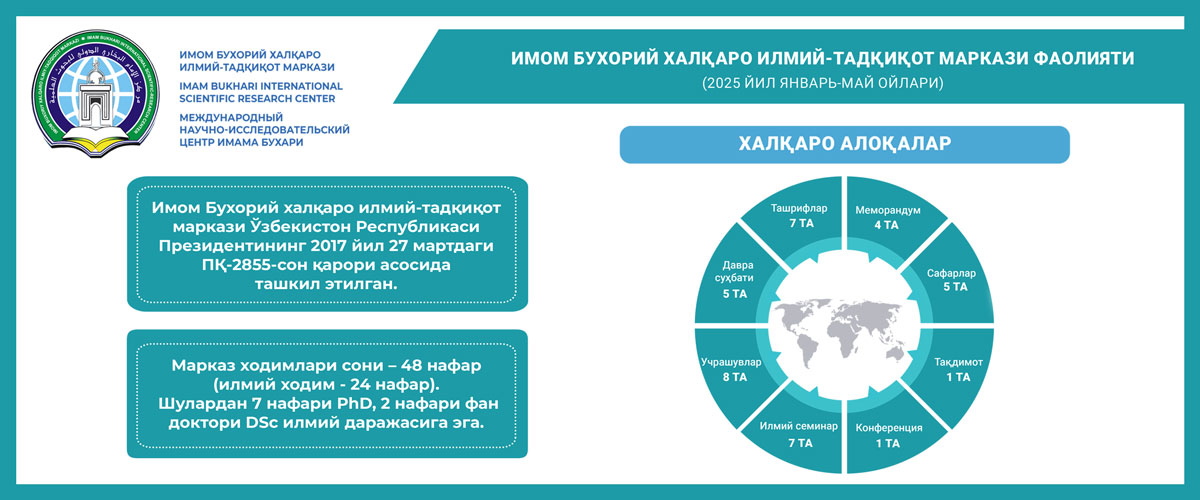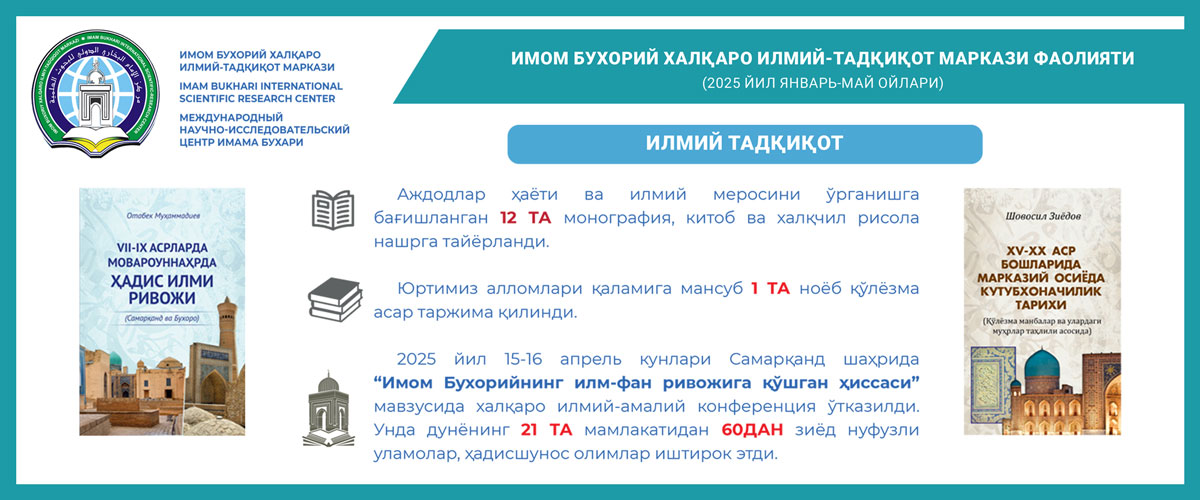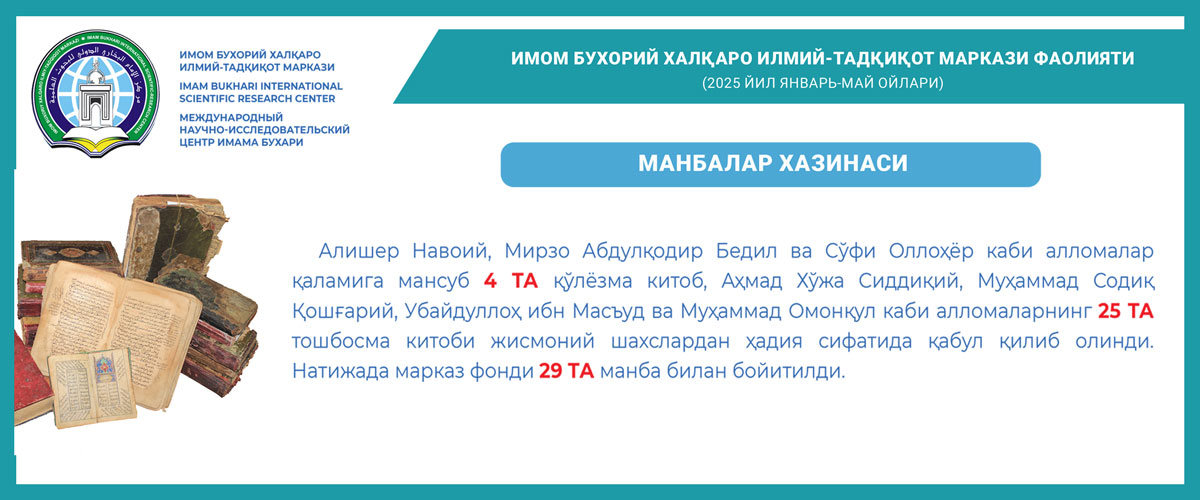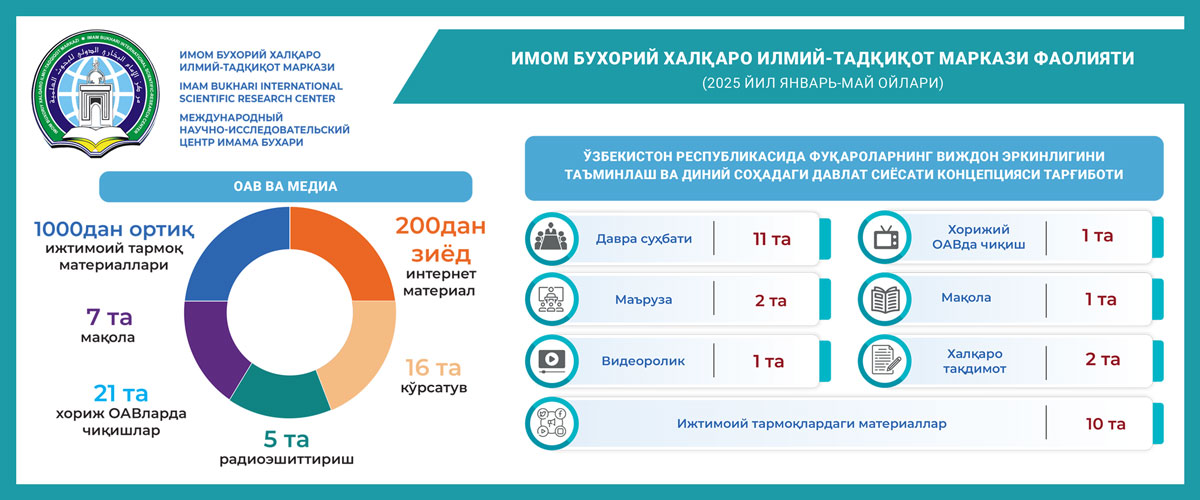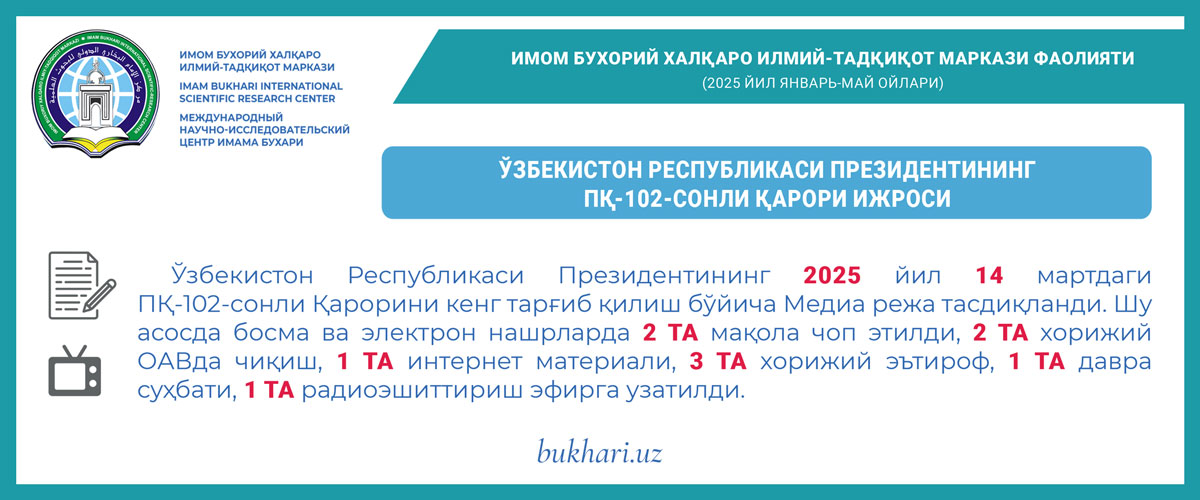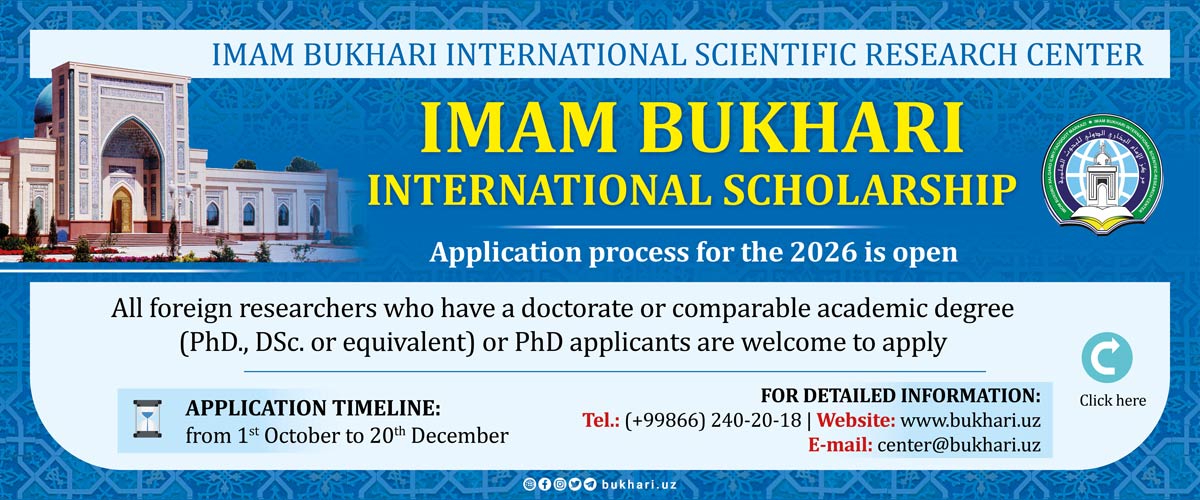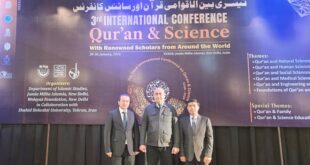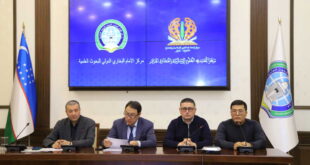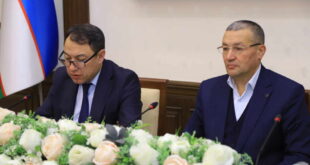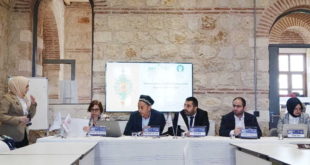Jointly with Asien-Afrika-Institut of the Universität Hamburg (Germany) and the Imam Bukhari International Scientific Research Center was organized an online seminar from the series “Material Culture of the Zerafshan Valley ”.
Seminar was attended by researchers of the Center, researchers from scientific institutions in our country and abroad, as well as scientists from Egypt, Germany, Austria and Turkey.
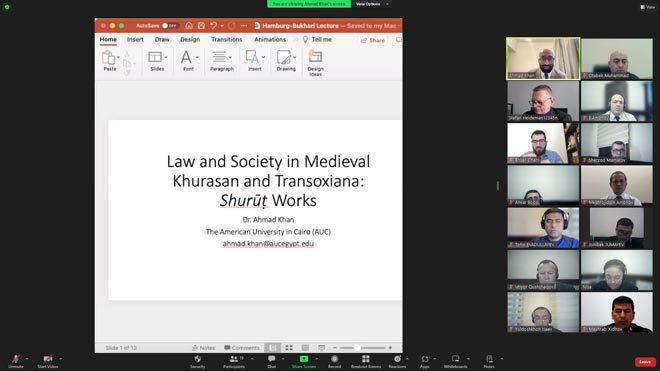
At the seminar, Associate Professor Ahmed Khan of the American University in Cairo gave a lecture on the topic “Law and Society in Medieval Khurasan and Transoxiana: Shurūṭ Works”.
The scientist gave information about the legal aspects of life in Movarunnahr and Khorasan in the Middle Ages, and also emphasized the important role of Islamic legal sources and jurisprudence in the practice of state and regional administration.
In the lecture, the inextricable connection between law and history was shown by means of various sources – chronicles, biographical dictionaries, documents and legal works.
At the seminar, among works related to law, much attention was paid to the discussion of positive legal doctrine (fiqh), new legal works (nawazil) and legal opinions (fatwas), the jenre Shurut.
The science of Shurut is a field that studies legal contracts and their conclusion, and includes a set of strictly ordered rules for the legal execution of all types of contracts related to fiqh, wills, donations and other judicial documents.
The speaker noted the high importance of the works of shurut in the study of Islamic law and touched upon the history of the creation of legal sources. The fact is that in modern science only such works written in Egypt in the 10th century are more often mentioned. And the scientist intends to expand the scope of research and study deeper the legal life in Khorasan and Movarunnahr.
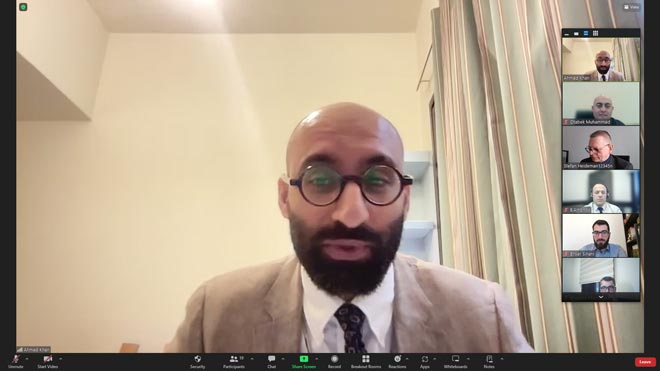
Ahmad Khan gave detailed information about the development of legal doctrine in the region, about the scientists who classified the works of Shurut, the largest sources on jurisprudence, the socio-historical realities of land, property and rulers.
The seminar continued with questions and answers section.
 Imom Buxoriy xalqaro ilmiy-tadqiqot markazi bukhari.uz
Imom Buxoriy xalqaro ilmiy-tadqiqot markazi bukhari.uz
